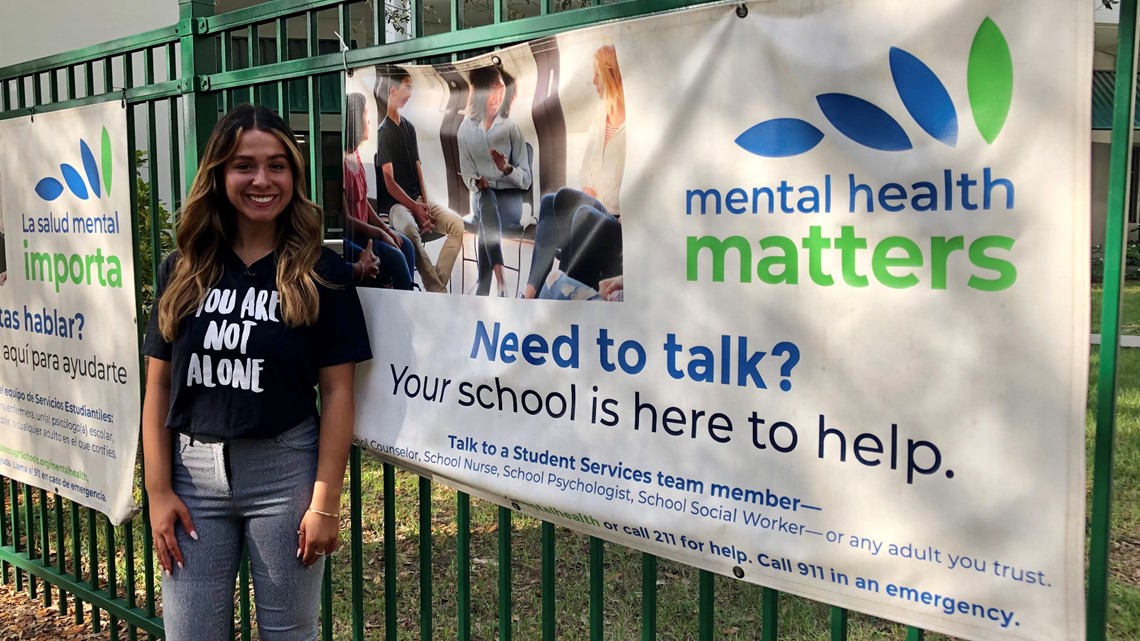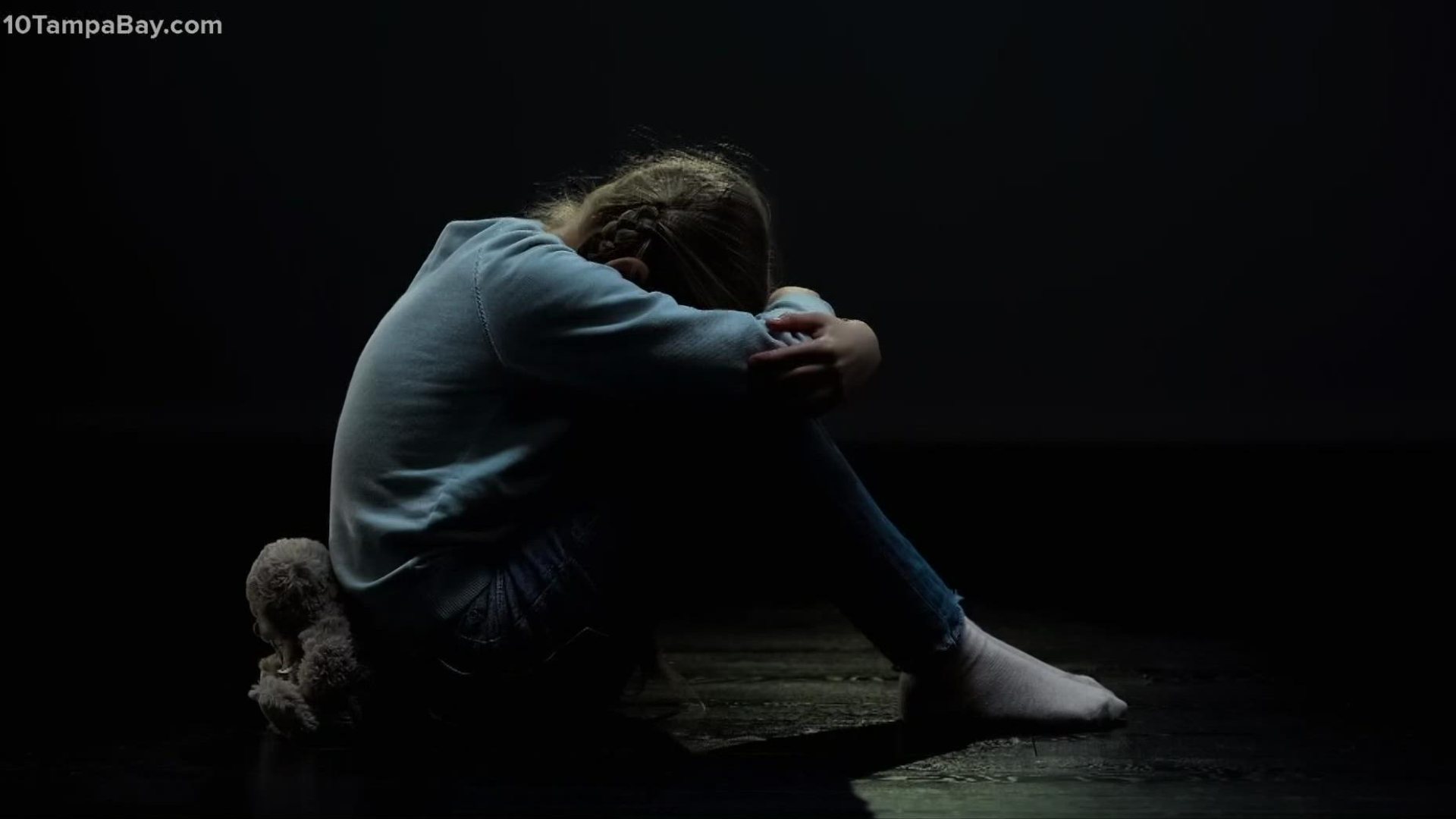TAMPA, Fla. — The long term effects of this pandemic are yet to be known on things like our health, economy, and just the way we interact and do business with one another.
One big concern is the impact this global crisis has had on young people.
If there's one takeaway from reading this, it's this: The time is now to talk to your children about their emotional wellbeing.
Last month, the American Academy of Pediatrics declared a national emergency in children’s mental health, citing the pandemic. The CDC found that between March and October of 2020, ER visits for mental health emergencies rose 24 percent in children ages 5-11 and 31 percent in kids 12 and older.
10 Tampa Bay explored the mental health challenges facing the next generation. We started with Claudia Alvarez, a senior at Sickles High School in Tampa.
Alvarez said her mental health started declining her sophomore year of high school, shortly after the pandemic hit.
"It was so abruptly interrupted and we had no idea how to deal with it and no one had any idea how to deal with it so there goes your support system," said Alvarez, who was starting to think about where she wanted to go to college and what to do with her future.
"The beginning of the pandemic threw me into a spiral," she said. "There were so many plans that I could no longer execute."
Alvarez said the intense anxiety was causing migraines and bloodshot eyes; and she turned to her mother for help.
"She does always make it known that it’s not normal, that I’m not supposed to be feeling like this and that I need to embrace the anxiety. In order to fix it, you need to embrace it," said Alvarez who's now part of a student-led group focused on bringing mental health resources to Hillsborough County Public Schools.


According to the CDC, about three out of every 100 children ages 3-17 have diagnosed depression. Seven out of 100 have diagnosed anxiety.
"The next pandemic to hit our shores is mental health. We're now seeing a delayed response with our children," said Natasha Pierre, a mental health educator and Executive Director of NAMI Hillsborough.
In just the last few weeks, she's seen children in crisis including a teenage boy with an extreme fear of COVID who refuses to leave the house, a teenage girl who lost a parent to COVID and abruptly quit sports and activities, and a first grader who stopped sleeping through the night and falls asleep at school.
Pierre is coaching parents and families on how to navigate mental health struggles.
"The first step that I tell every parent is have a courageous conversation. Have a courageous conversation with your child. Don't be afraid of what you might hear because you have to be your child's first listening ear," she said.
Hillsborough County Public Schools started keeping mental health statistics of its own, including the number of referrals for further treatment.
"If we look at the first quarter in comparison to last year, we have seen about five times more mental health referrals in this first quarter," said Michael Kelleher, the district's supervisor of clinical care.
But that's not necessarily a bad thing. Kelleher says families are more aware of their children's mental health and more open to finding the necessary support.
Hillsborough County Schools is spending $7.5 million on mental health resources, including a mobile response team that brings specialized professionals to campus if a student is feeling suicidal. There's also more training for teachers and expanded staffing.
To start the 2021-22 school year, 120 schools have a therapist on campus. Two years prior, only two schools had an on-site therapist.
"During the pandemic and after the pandemic, we've seen students come back to school having anxiety," said Elizabeth Tanner, the supervisor of emotional wellness with Hillsborough County Schools.
Tanner meets with students like Claudia Alvarez, who come up with ideas and outreach events that address the mental health challenges of adolescents and children.
"It's okay to admit that you have a problem that you can't deal with by yourself, that first step is just admitting that your struggle is real and it's valid," said Alvarez.
PRODUCTIVE CONVERSATIONS
Natasha Pierre gave us some do's and don'ts for adults trying to help young people address their mental health.
DO THIS
- Restate what your child said to start a conversation. For example, "I heard you say you hate school. Tell me what's going on with that."
- Pay attention. If you notice something, it was meant to be noticed, no matter how small it might seem.
- Get out of the house. Have meaningful conversations on neutral ground like a park or trail. The home can feel like a parent's turf or have too many distractions.
DON'T DO THIS
- Don't compare. Each child is experiencing their own, unique situation. Hold space for their feelings.
- Don't avoid the uncomfortable. This pandemic has brought a wave of death so it's better to address the reality and have age-appropriate discussions about grief, loss, and sadness.
- Don't blame yourself. There's no manual on surviving a pandemic. Give yourself grace.

